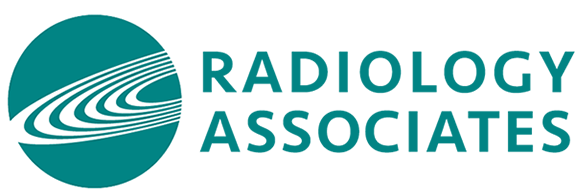Among the many reasons Radiology Associates Imaging (RAI) has been a trusted name throughout our region for more than 60 years is a dedication to breakthrough technologies, including nuclear medicine. Nuclear medicine describes a set of painless, noninvasive imaging tests that utilize small amounts of radioactive substances called radiotracers to diagnose and assess the severity and course of many types of cancers, neurological problems and much more. Radiotracers, which are typically introduced intravenously or orally, travel to the area being investigated and emit gamma rays that can be captured by a specialized camera and transferred to a computer screen for in-depth analysis. The images created by these scans are highly detailed, enabling earlier discovery – and in some cases treatment – of disease than many other types of tests.
The Board Certified radiologists of RAI use nuclear medicine scans to diagnose and analyze a wide variety of diseases and conditions, including:
Bone Scan – This is used to evaluate bone and joint abnormalities and diseases. An injectable radiotracer travels through the bloodstream to the bones and joints, enabling your radiologist to get detailed images of fractures, infections, arthritis, tumors and other problems. Radiology Associates Imaging uses bone scans to diagnose disease and measure the effectiveness of treatments for diseases like cancer and arthritis.
Gastric Emptying Test (GET) – A GET is used to analyze the stomach’s speed and capacity to empty efficiently. Slow or incomplete gastric emptying, a condition called gastroparesis, is often marked by serious symptoms, including pain, bloating, nausea, vomiting and acid reflux. A GET is performed by having you swallow a tiny radiotracer, which travels to your stomach so images can be captured by a specialized scanner.
DaTscan – The DaTscan is a study used to evaluate the brain for tremors and Parkinson’s disease. A radiotracer is injected into the bloodstream, where it travels to the brain and targets the neurons responsible for controlling movement, allowing them to be imaged. This scan is highly useful in differentiating Parkinson’s disease from lesser nervous system disorders, like essential tremors. Advances in technology can give our RAI radiologists results of the DaTscan in just weeks, instead of months or years like other tests.
Gallium scan – A gallium scan is able to explore the entire body for infection and tumors. Cancer cells and infections absorb gallium more aggressively than normal healthy cells, making the gallium scan effective in detecting lymphoma, tumors and hidden sources of infection. A gallium scan takes place over the course of three days for system emptying and two separate scans to ensure accuracy.
Hepatobiliary scan – Also called a gallbladder scan, this test enables evaluation of the biliary system. This scan is used to assess gallbladder disease and dysfunction, including gallstones, tumors, hematomas, abscesses, cysts and gallbladder enlargement.
Liver scan – A liver/spleen scan is highly useful in catching diseases and injuries, including cancer, hepatitis, cirrhosis, abscesses, cysts, trauma and hematomas, as well as enlargement or impaired function of the liver and/or spleen. A radiotracer is injected into the bloodstream, where it travels to the liver and spleen for detailed imaging. RAI’s radiologists can also diagnose elevated blood pressure within the liver, which can signify a serious condition called portal hypertension, which is easiest to treat when caught early.
Parathyroid scan – This study is used to diagnose abnormal or overactive parathyroid glands, which are small endocrine glands responsible for regulating the amount of calcium in the blood and within the bones. For this test, the radiotracer is injected or swallowed, enabling imaging and assessment of parathyroid function.
Thyroid scan – This scan is used to examine thyroid structure, activity and efficiency. Because the thyroid is responsible for producing and storing hormones necessary to help regulate heart rate, blood pressure, metabolism and other vital processes, any problems should be diagnosed and treated as quickly as possible.
RAI offers state-of-the-art nuclear medicine scans at our Imaging Centers at St. Augustine, Town Center, Twin Lakes and Port Orange, where our highly trained nuclear medicine technologists see to your safety and comfort, and our team of Board Certified radiologists read all imaging results in-house for assured experience and accuracy.

